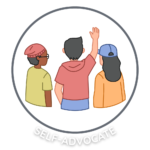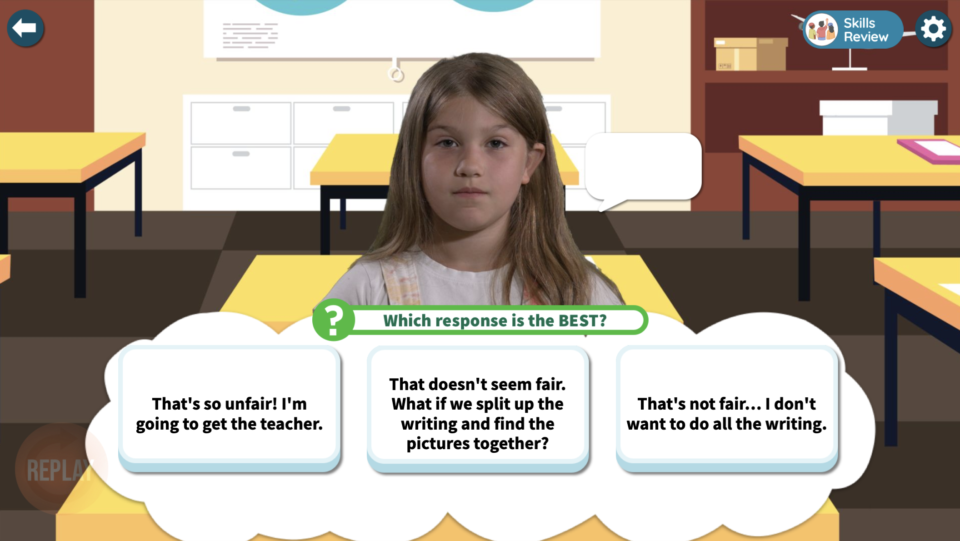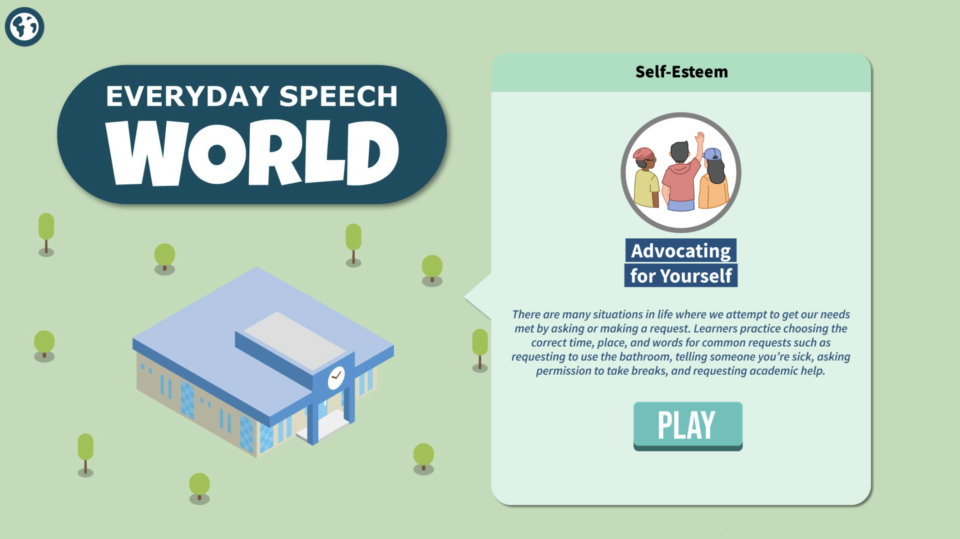
Teaching self-advocacy is a vital part of empowering elementary school students, particularly those in special education. Self-advocacy helps students express their needs, make informed decisions, and gain confidence in navigating various social situations. Everyday Speech World offers an engaging and immersive digital environment where students can practice self-advocacy through an interactive social skills simulation. This blog post will provide a detailed lesson plan and tips for using Everyday Speech World to teach self-advocacy skills.
Why Self-Advocacy Matters
Self-advocacy is crucial for students because:
- It builds confidence: Students learn to express their needs and preferences.
- It promotes independence: Encourages students to take charge of their own decisions.
- It enhances communication: Improves the ability to articulate thoughts & feelings.
- It fosters resilience: Helps students navigate and overcome social challenges.
Introducing Everyday Speech World
Everyday Speech World is an interactive social skills simulation where students can engage in various social scenarios requiring self-advocacy. The game follows a “Good Better Best” format, presenting students with three response options and allowing them to see the outcomes of each choice. This interactive approach makes learning about self-advocacy both fun and educational.

Lesson Plan: Teaching Self-Advocacy with Everyday Speech World
Objective
By the end of the lesson, students will understand the importance of self-advocacy and be able to identify and choose the best responses in social situations.
Materials Needed
- Computers or tablets with access to Everyday Speech World
- Whiteboard and markers
- Reflection journals
Duration
45-60 minutes
Activity Steps
1. Introduction to Self-Advocacy (10 minutes)
Start the lesson by discussing self-advocacy. Explain what it means and why it is important. Use simple, age-appropriate language. For example, “Self-advocacy is speaking up for yourself and asking for what you need.”
2. Introducing Everyday Speech World (5 minutes)
Introduce Everyday Speech World to the students. Explain that they will navigate different social situations in a digital environment where they will practice self-advocacy. Highlight the “Good Better Best” format and how they will choose the best response.

3. Interactive Play (20 minutes)
Log in to Everyday Speech World. Have students explore the game and participate in various scenarios. Encourage them to think about each response option and its potential outcomes. Offer support and guidance as needed.
4. Group Discussion and Reflection (10 minutes)
After the interactive play, gather the students for a group discussion. Ask them to share their experiences:
- What situations did they encounter in the game?
- What responses did they choose, and why?
- How did the outcomes differ based on their choices?
5. Review and Reinforce (5 minutes)
Review the key points of self-advocacy and the “Good Better Best” approach. Reinforce the importance of choosing the best response in various social situations. Encourage students to think about how they can apply these skills in their everyday lives.
Unlock our full Pre-K through 12th Grade curriculum by signing up for your free trial today – no credit card required!
Access the full Social Communication Curriculum HERE!
Instant access to thousands of no-prep social skills activities, over 1000+ video lessons, and engaging games designed to enhance learning and development.
Conclusion
Teaching self-advocacy to elementary school students is a critical part of their development. Using the immersive social skills simulation, Everyday Speech World, teachers can effectively engage students in learning and practicing self-advocacy skills. By following the lesson plan and incorporating the no-prep activity ideas, educators can provide a comprehensive and enjoyable learning experience that empowers students to become confident self-advocates. For more resources and tips on teaching social-emotional learning, stay tuned to our blog.
Sample Video
Try out this sample animated video lesson.
We offer our entire Social-Emotional Learning platform free for 14 days here!
Related Blog Posts:
Navigating Middle School: Enhancing Social Skills Through Videos
Teaching Middle School Students to Stay Calm and Solve Problems
Promoting Mental Well-being: SEL Lessons for Middle School Students






